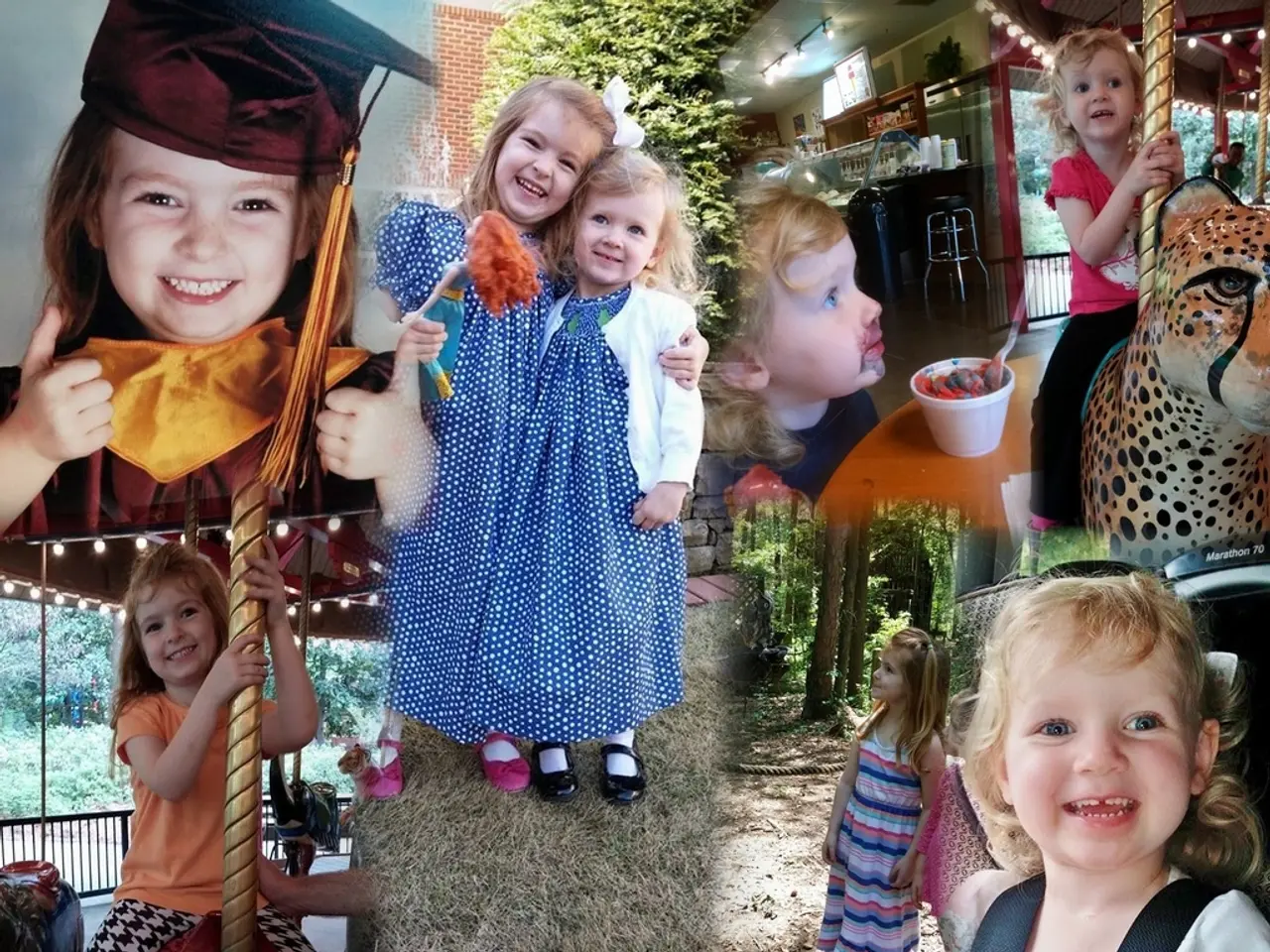Children can learn how to sort their waste correctly through a game application, according to Müll AG's smartphone offer for kids.
The Waste AG app, now available in various foreign languages, offers an innovative approach to waste management. This app aims to keep users engaged by providing educational content beyond the "assembly line" work of waste sorting, making it an enjoyable experience for all ages.
One of the unique features of the Waste AG app is its ability to adapt to a user's location. By taking into account your geographical position, the app can align with local waste separation regulations and peculiarities, such as different bin colours.
The app can be downloaded from usual app stores and is designed to be a tool for learning about the circular economy and waste disposal. It includes mini-games teaching children about recycling glass, batteries, and composting, among other topics.
The Waste AG app's game adapts to different locations, with a planet named Neux serving as the setting. As players sort waste on Neux into correct bins, they earn points, encouraging active participation and reinforcing positive behaviors related to waste reduction and recycling.
The app's interactive educational content, gamification, real-life scenarios, user-friendly interface, and potential behavioural impact make it a valuable resource for promoting early awareness and responsibility regarding waste management and the circular economy.
Recently, Environmental Commissioner Gregor Küpper's team adapted the Waste AG app for the Rhein-Kreis Neuss, marking a modern building block in waste consulting. By educating children about waste separation and the circular economy, the app could influence long-term sustainable habits and community environmental attitudes.
While specific details about the Waste AG app are not yet available, it is likely that this app shares common educational strategies used in similar apps designed to teach children about waste separation and circular economy principles. These include engaging multimedia, gamification, real-life scenarios, a user-friendly interface, and a focus on behavioural impact.
As more information about the Waste AG app becomes available, we can expect a clearer understanding of its features and benefits in educating children about waste separation and the circular economy. Stay tuned for updates on this exciting new tool in waste management and environmental education!
[1] MyWaste app: https://mywaste.fi/en [2] Smart bins and IoT waste systems: https://www.smartcitiesworld.net/technology/smart-bins-iot-waste-management-systems/ [3] Agricultural apps for sustainable farming: https://www.farmingfirst.org/news/agricultural-apps-key-to-sustainable-farming-future/
- The Waste AG app, beyond its waste management features, also encourages sustainable living by integrating education and self-development about the circular economy, making it a useful tool for a wider home-and-garden lifestyle that values sustainability.
- With its focus on user-friendly interface, educational content, and gamification, the Waste AG app can be compared to other apps in the education-and-self-development category, such as agricultural apps designed for sustainable farming.
- As the Waste AG app promotes learning about waste management and the circular economy, it contributes to a lifestyle that values other sustainable practices, bridging the gap between waste management and a broader understanding of sustainable living.




